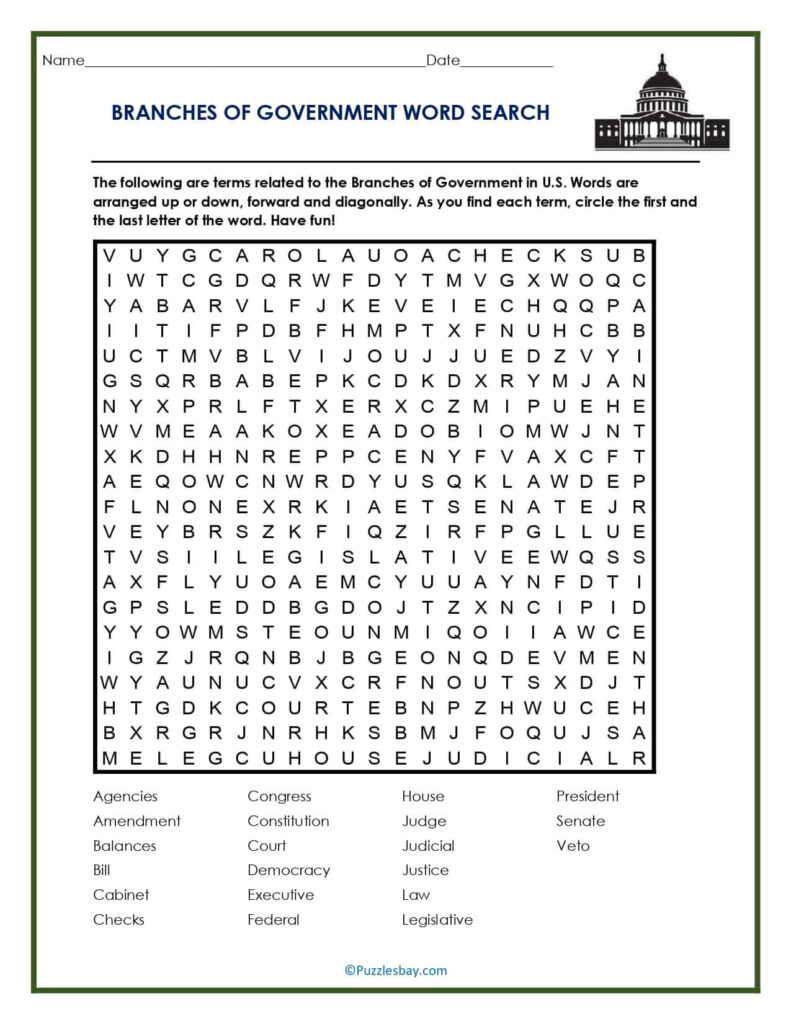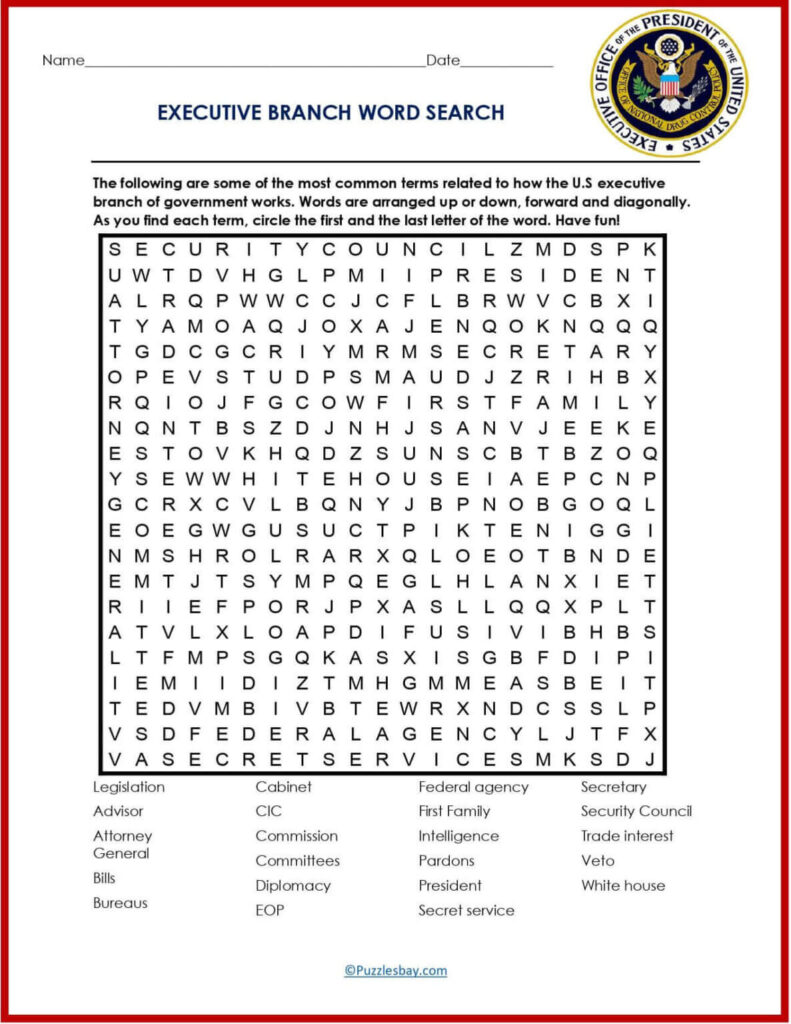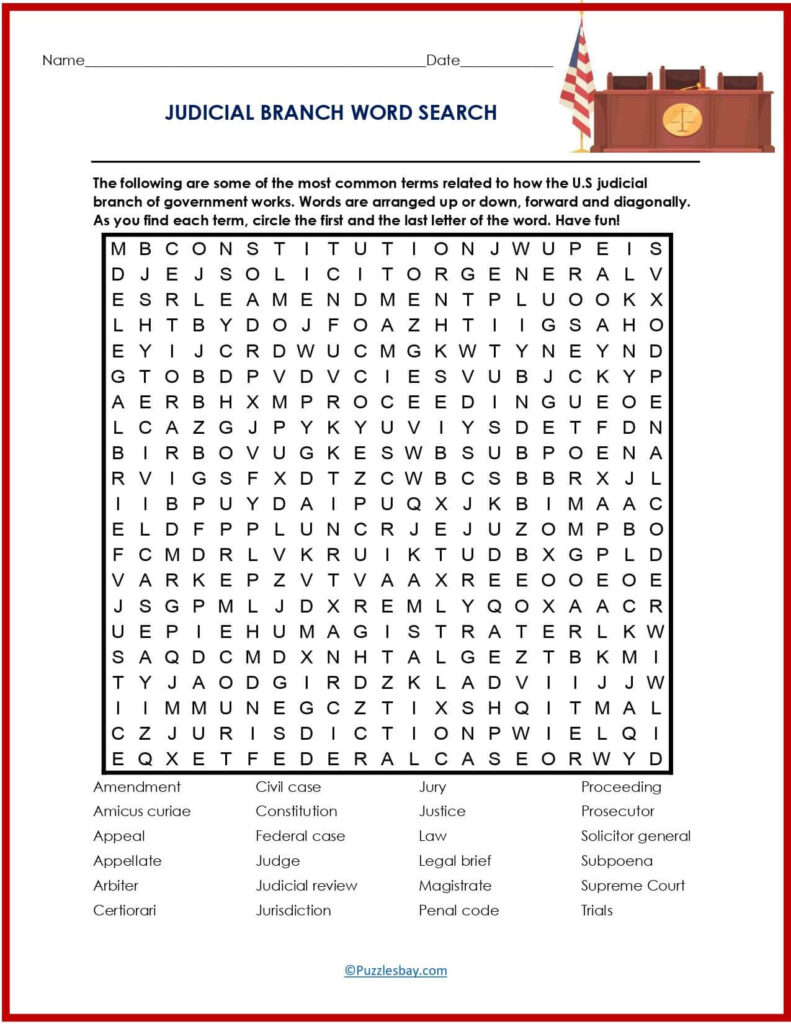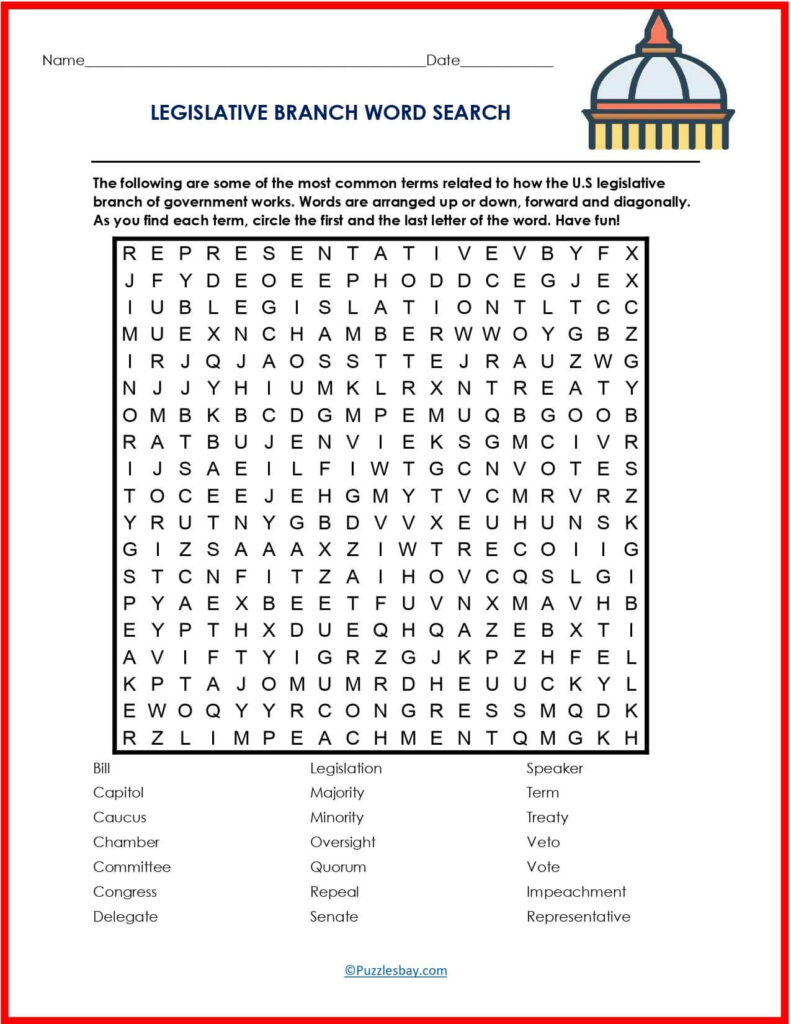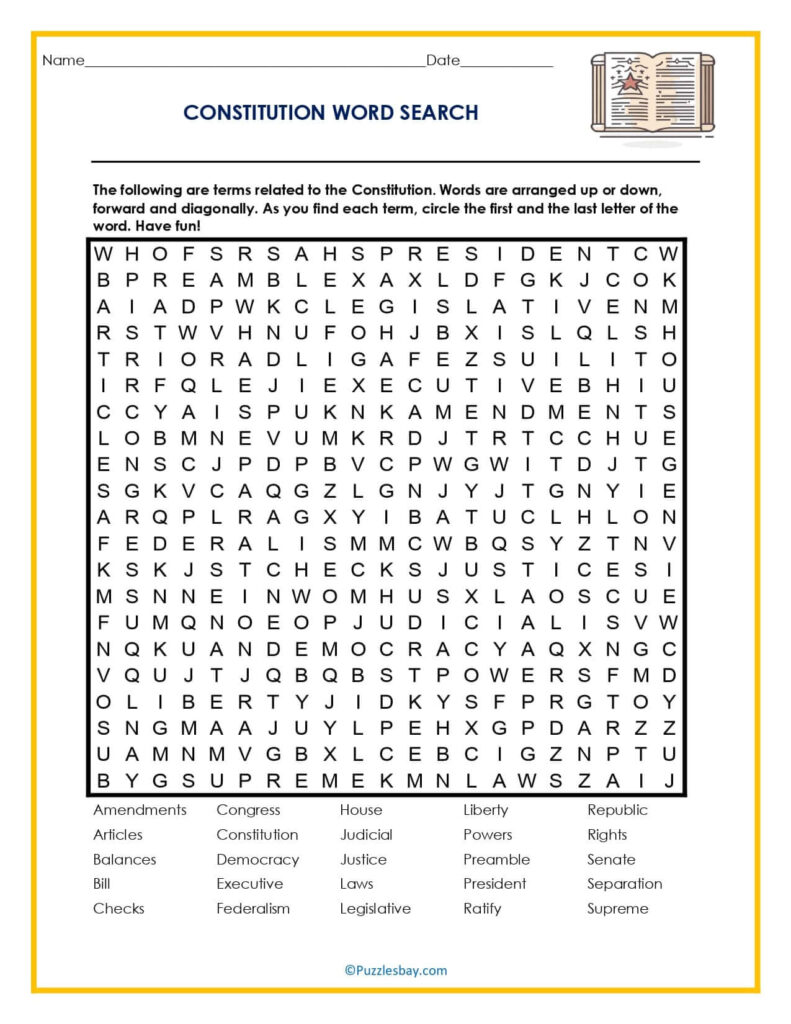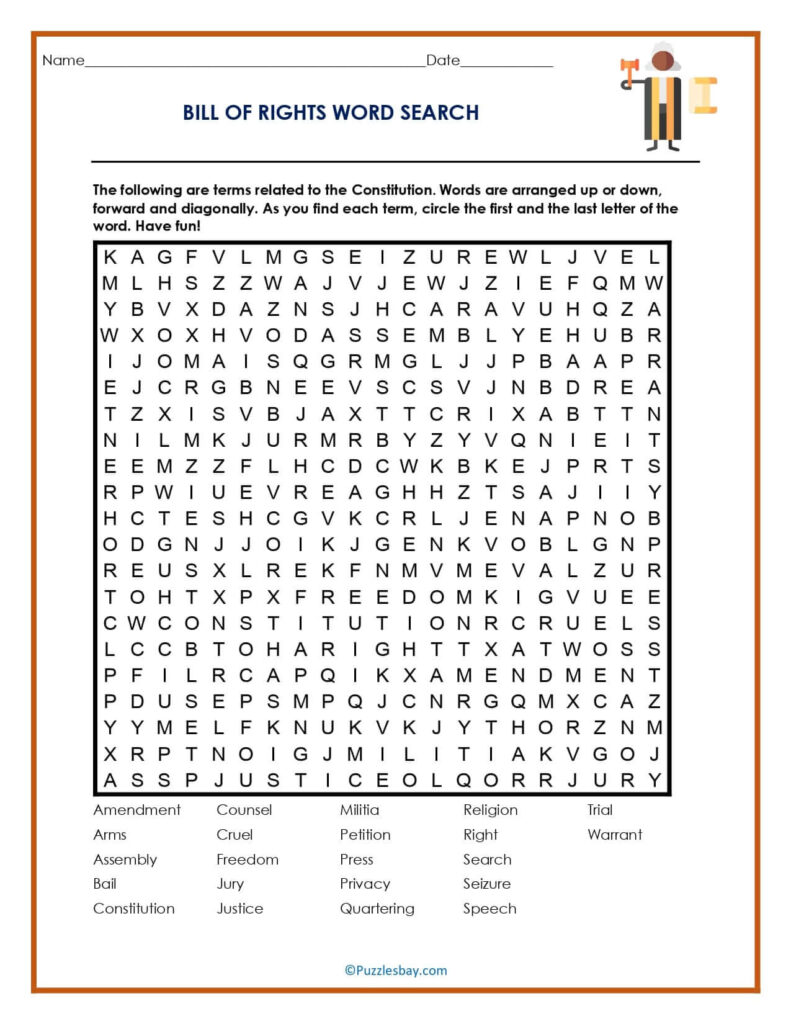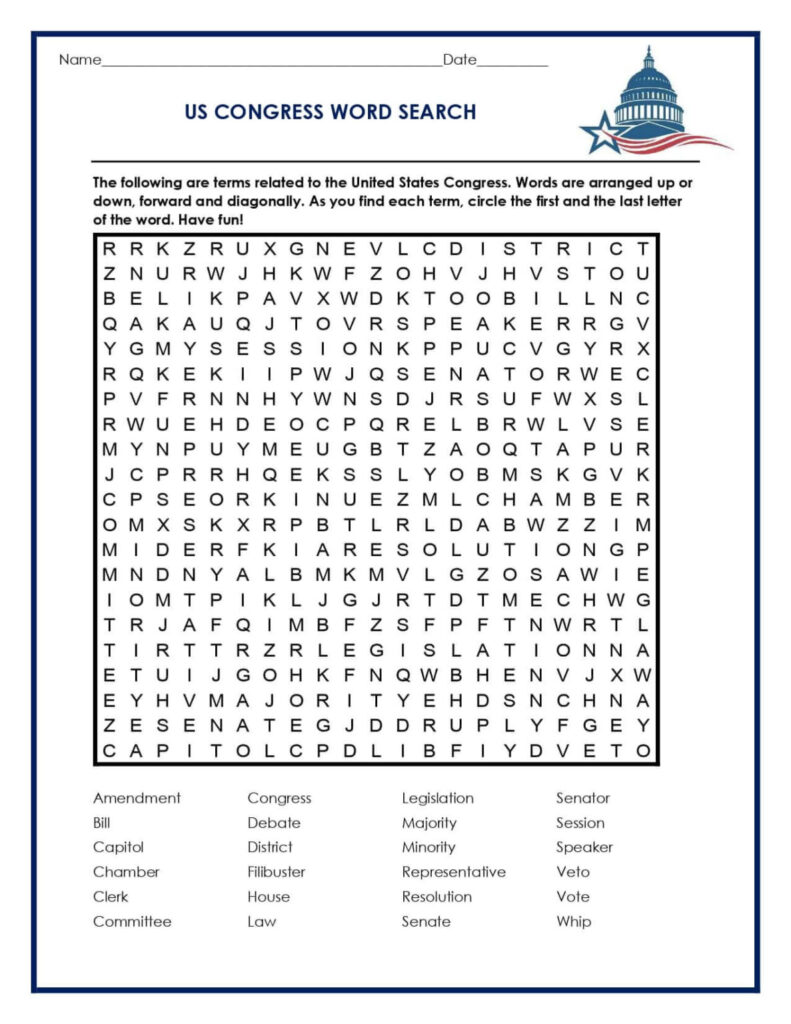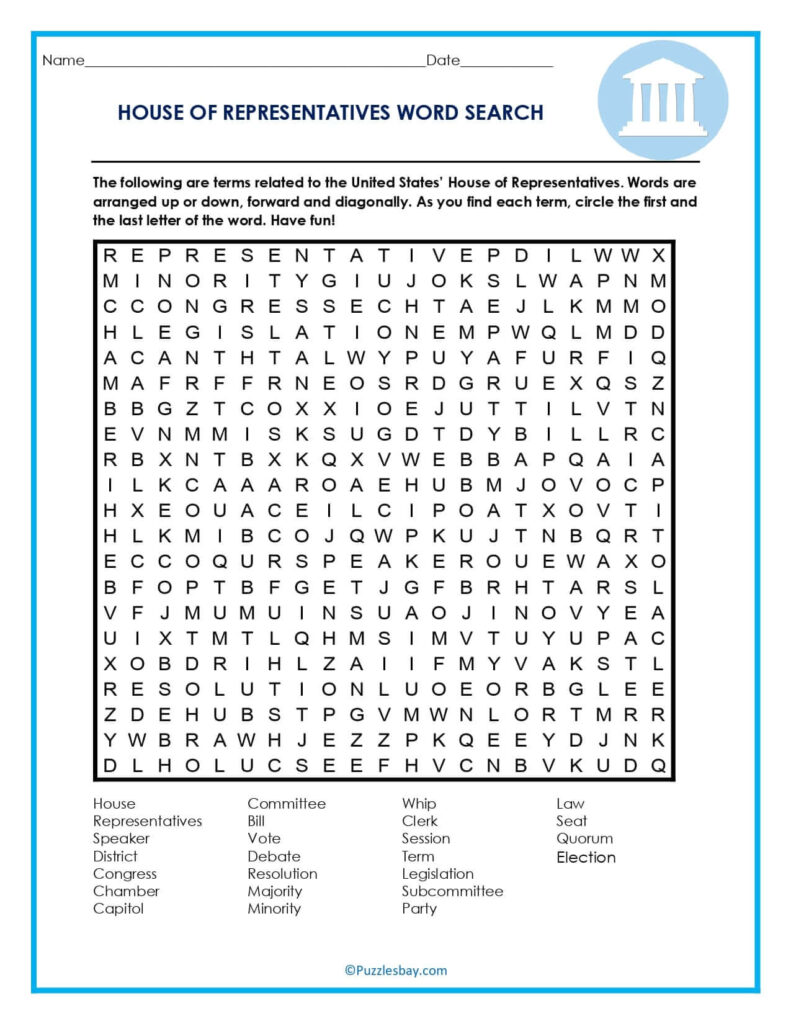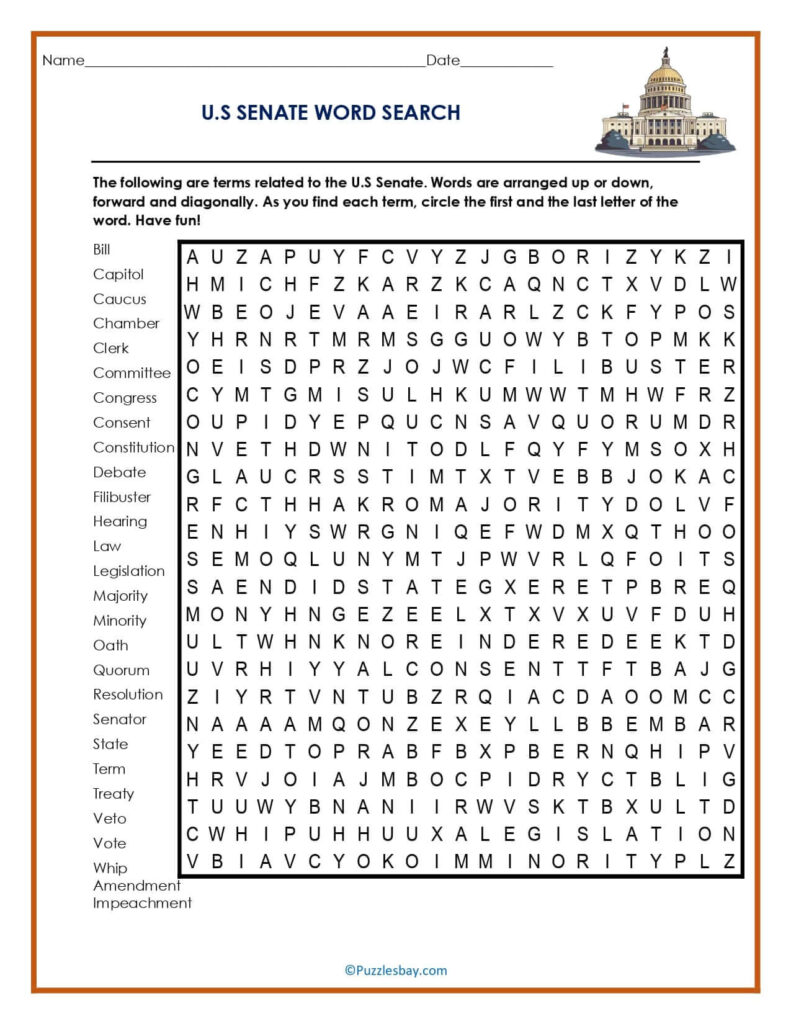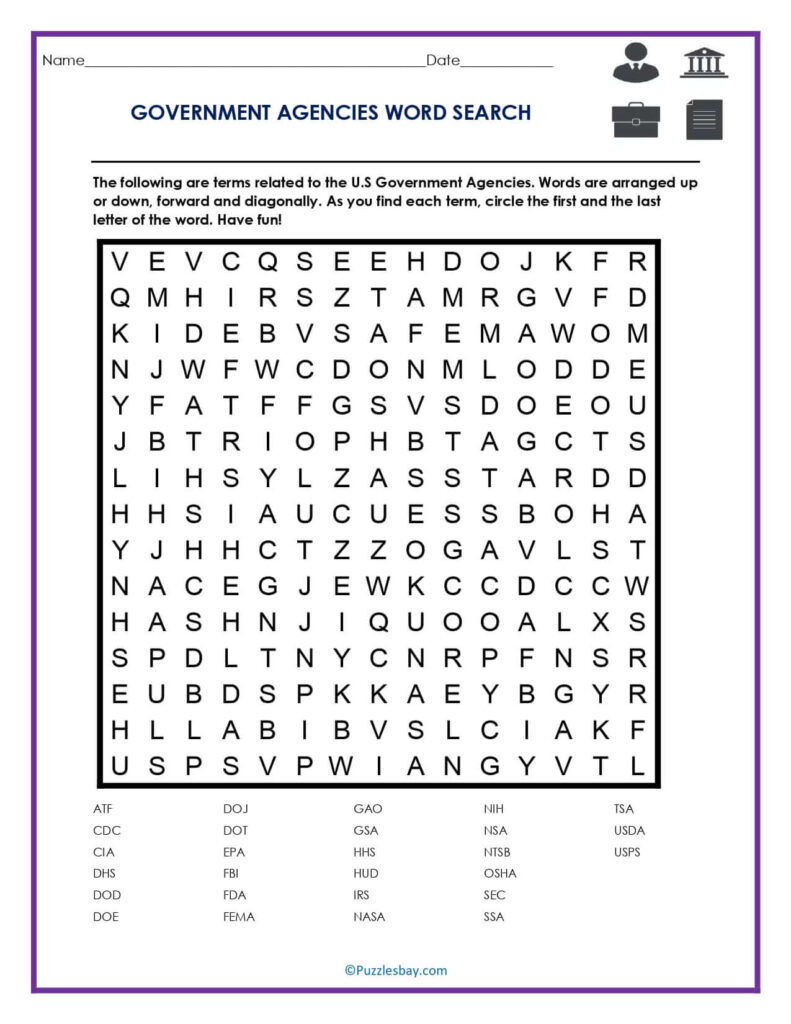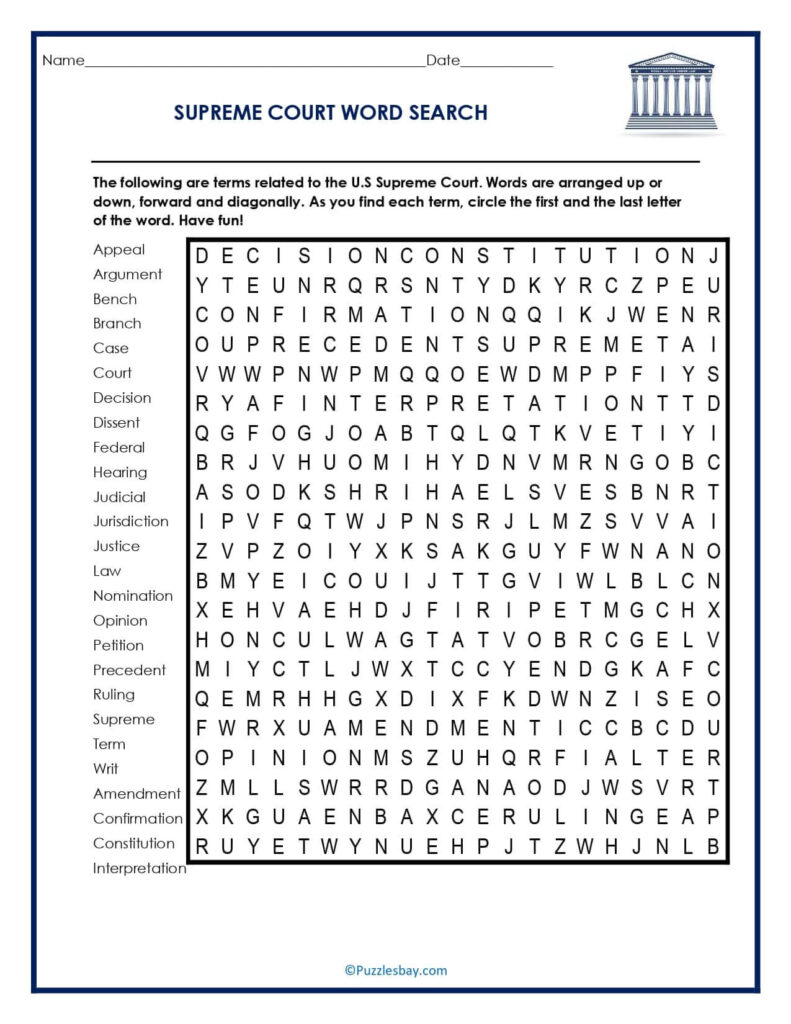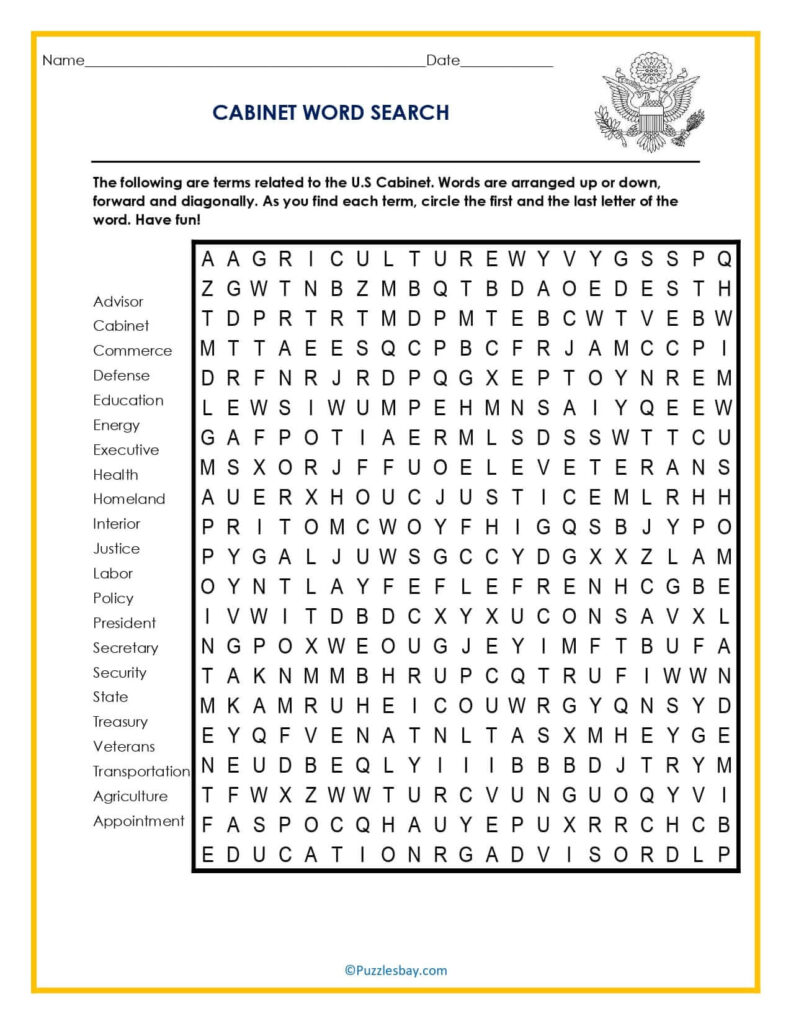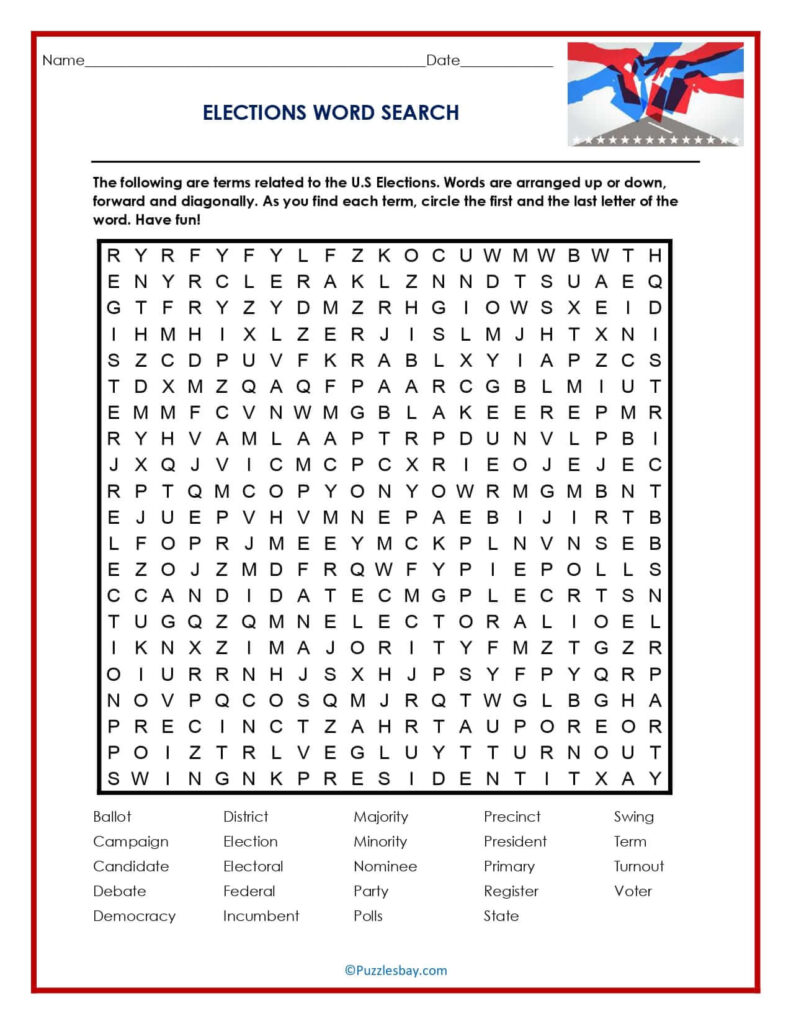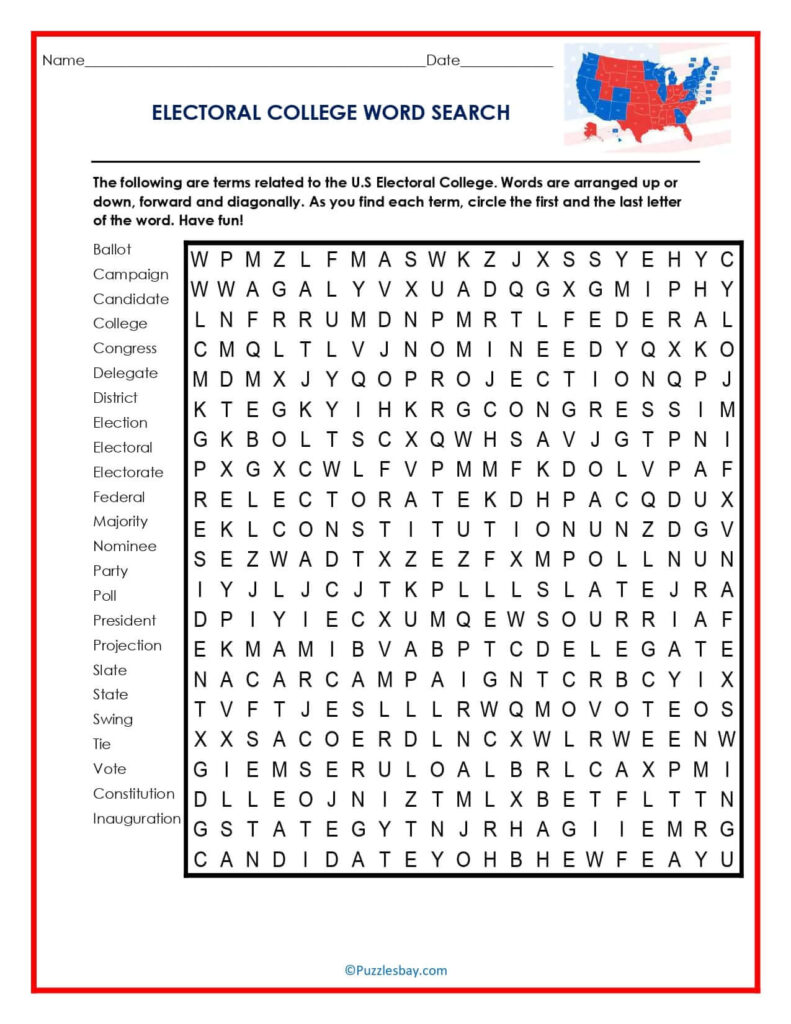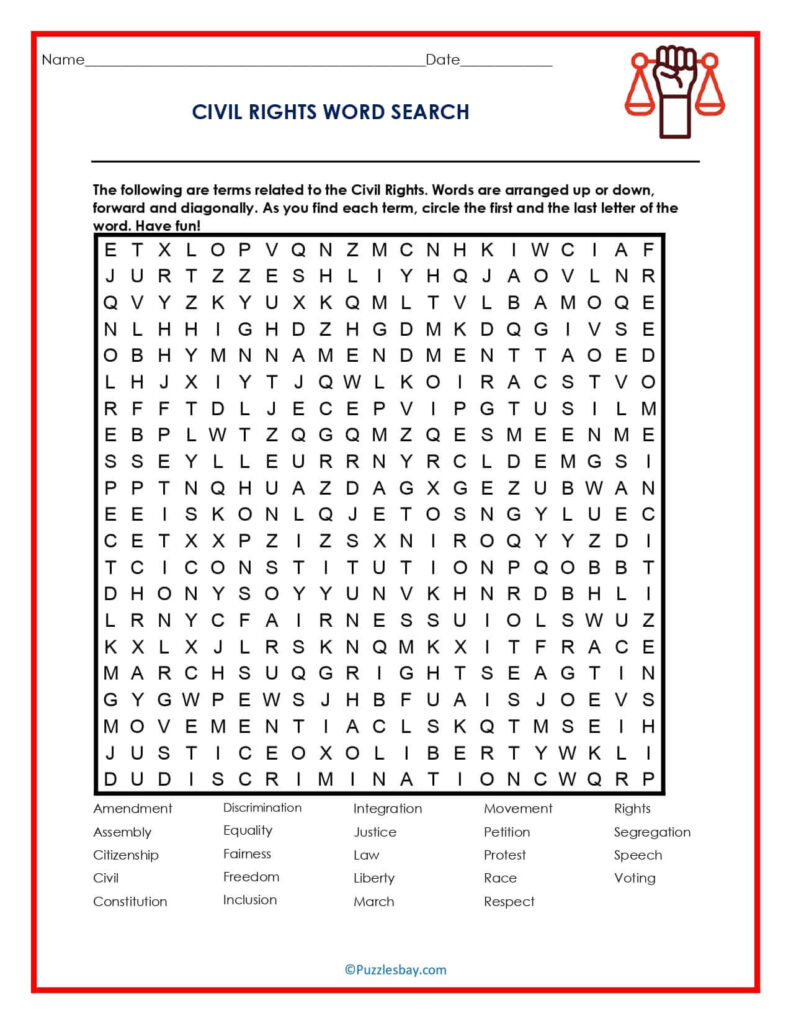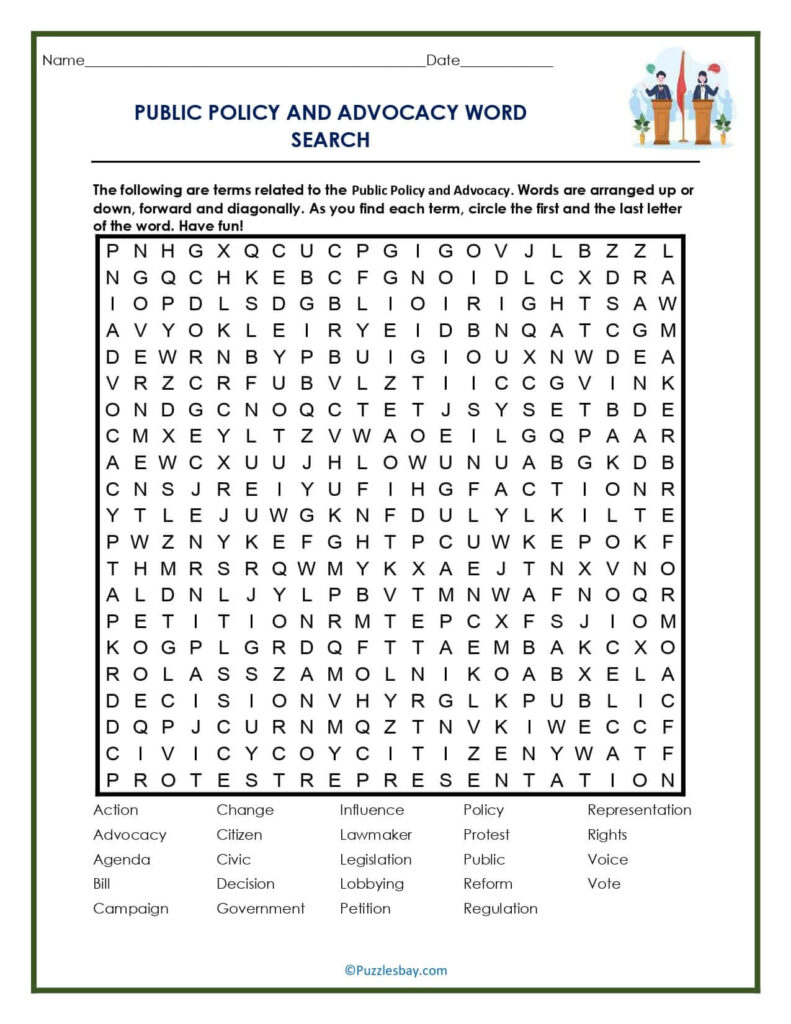Contrary to what many people think, civics education goes beyond participation in politics and societies; it also includes involvement in the classroom, local organizations, community, and groups.
In civics, students learn about practices such as elections, the voting process, jury service, volunteering, and collaborating with others to improve society.
They also discover how to make their voices heard and contribute to public processes and discussions on real issues.
If you plan to introduce learners to civics education, our civics word searches collection is the perfect resource that you need. It contains puzzles with lists of terms related to civics and will help you introduce the topic in a seamless and fun way.
General
Civics Word Search
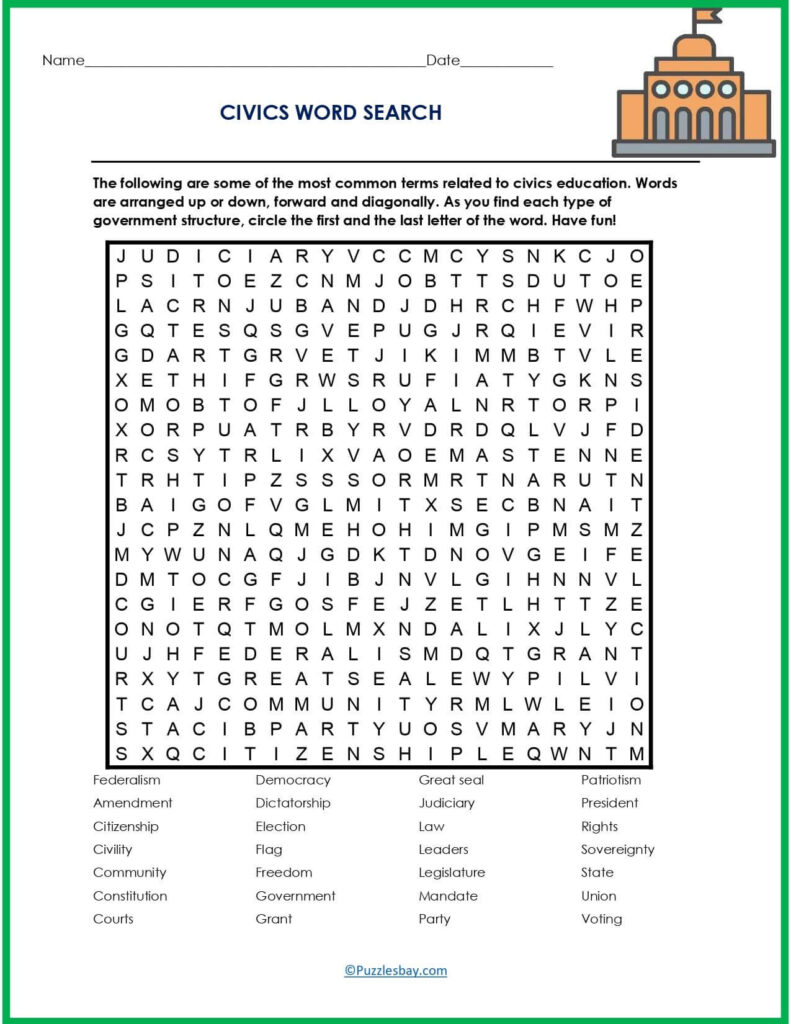
Core Government Structure
Key Institutions
Democratic Processes
Historical Foundations
Local Government and Community
How the Word Search Puzzles Work
In each puzzle, the terms are hidden in all directions—up, down, forward, and even diagonally. To play, scan the grid carefully and look for the words listed. When you spot a word, circle both the first and last letters to mark it clearly. Take your time, stay focused, and enjoy the challenge! Word searches are meant to be both fun and educational, so relax and have a great time finding every term.
Benefits of Word Searches
Word searches are more than just fun—they’re educational tools that enhance vocabulary, improve spelling, and boost pattern recognition skills. For younger learners, they help reinforce letter and word recognition, while older students can use them to review key terms and concepts in an engaging way. Word searches also encourage concentration and can be a calming, low-pressure activity that promotes focus and cognitive development.
Where You Can Use Word Searches
Word searches are versatile and can be used in classrooms, homeschooling, tutoring sessions, libraries, and even during downtime at home. They’re great for reinforcing lessons in subjects like history, science, or government. Teachers can use them as warm-up activities, homework assignments, or review tools before a quiz. They also work well in after-school programs, senior centers, or as part of themed activity packets for events and holidays.

